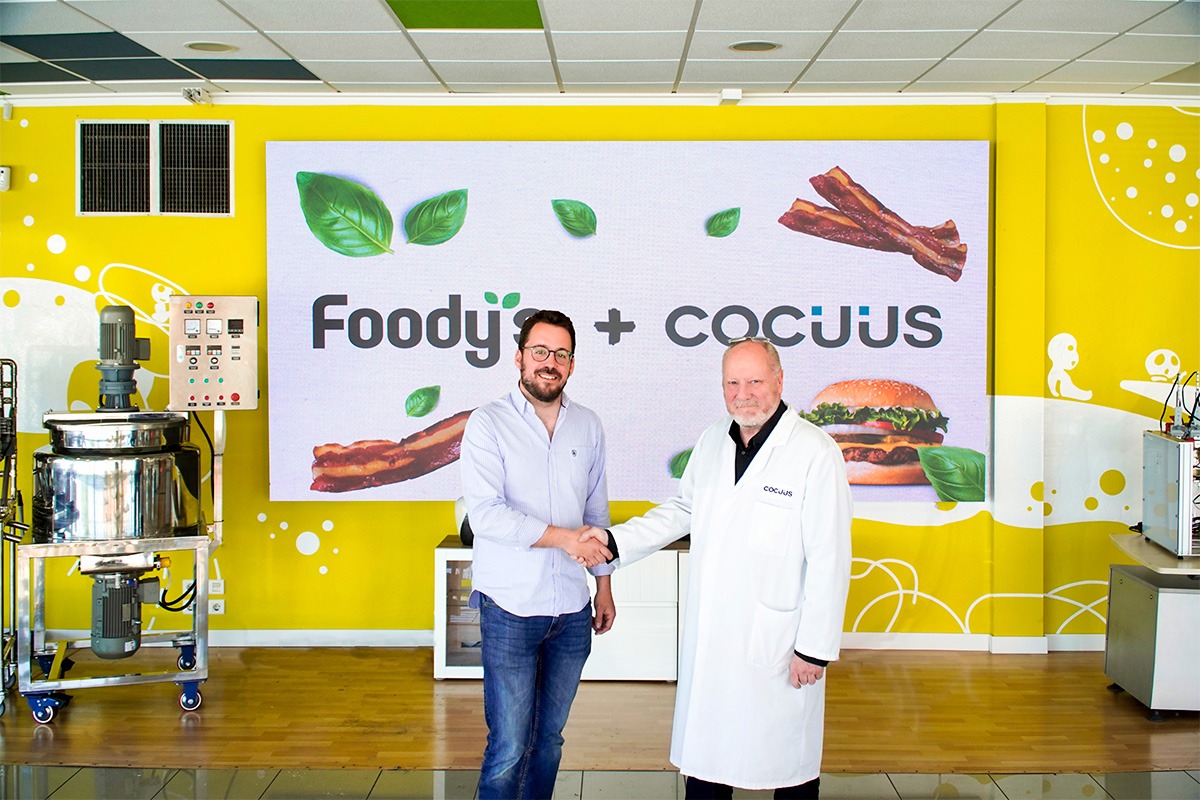Foody’s, part of the Enhol Group, and Cocuus have signed an agreement with which they hope to consolidate their position as two of the “most avant-garde” companies in the world in the development, industrialization and commercialization of plant-based products.
Foody’s will be in charge of industrializing and commercializing the food produced by Cocuus technology, presented last September during the inauguration of its new headquarters in Landaben.
Specifically, both companies installed last March the first of a series of 3D bioprinters at Foody’s headquarters in Tudela. There, according to what they told Navarra Capital, they will manufacture meat and fish analogues in “state-of-the-art facilities with all the quality guarantees”.
For the time being, they will produce 100% vegetable bacon, the first product to reach the national market. It will do so before the summer, under the brand Foody’s & Cocuus, and will be sold in refrigerated trays of 120 grams “at a very competitive price, with much less fat, without gluten or soy and with all the flavor and texture of its analogue”, they explained. After this launching, they are preparing the production of ‘shrimp’, ‘salmon’, ‘octopus’, ‘foie’ or ‘tuna’ plant-based, among others.
“It is the first in a series of products clearly superior to those known in the category to date. This industrial printer is unique in the world and will allow us to produce 1,000 tons of 100% vegetable bacon per year. We will be able to produce more sustainable and nutritious food with vegetable-based animal protein analogs,” said Gonzalo Agorreta, CEO of Foody’s.
“Without a doubt, this is a technology that will forever change the way we produce healthy, tasty and sustainable food for the world at scale. This technology aims to revolutionize food science through disruptive solutions for the industry,” says Patxi Larumbe, founder and CEO of Cocuus.
With this new technology developed by Cocuus, now industrialized by Foody’s, the two firms also hope to “revolutionize the food of the future”, says Larumbe: “By creating production plants with bioreactors and bioprinters, from which meat or fish can be produced without the need for cows or fish, we will solve a major problem in the world. In addition, the tissues that come out of this technology will have no traces of chemicals or heavy metals”.
Thus, this type of product is mainly aimed at vegetarians and vegans, as well as to satisfy the demand of all those people who “every day relate more and more their food with their own health”.






